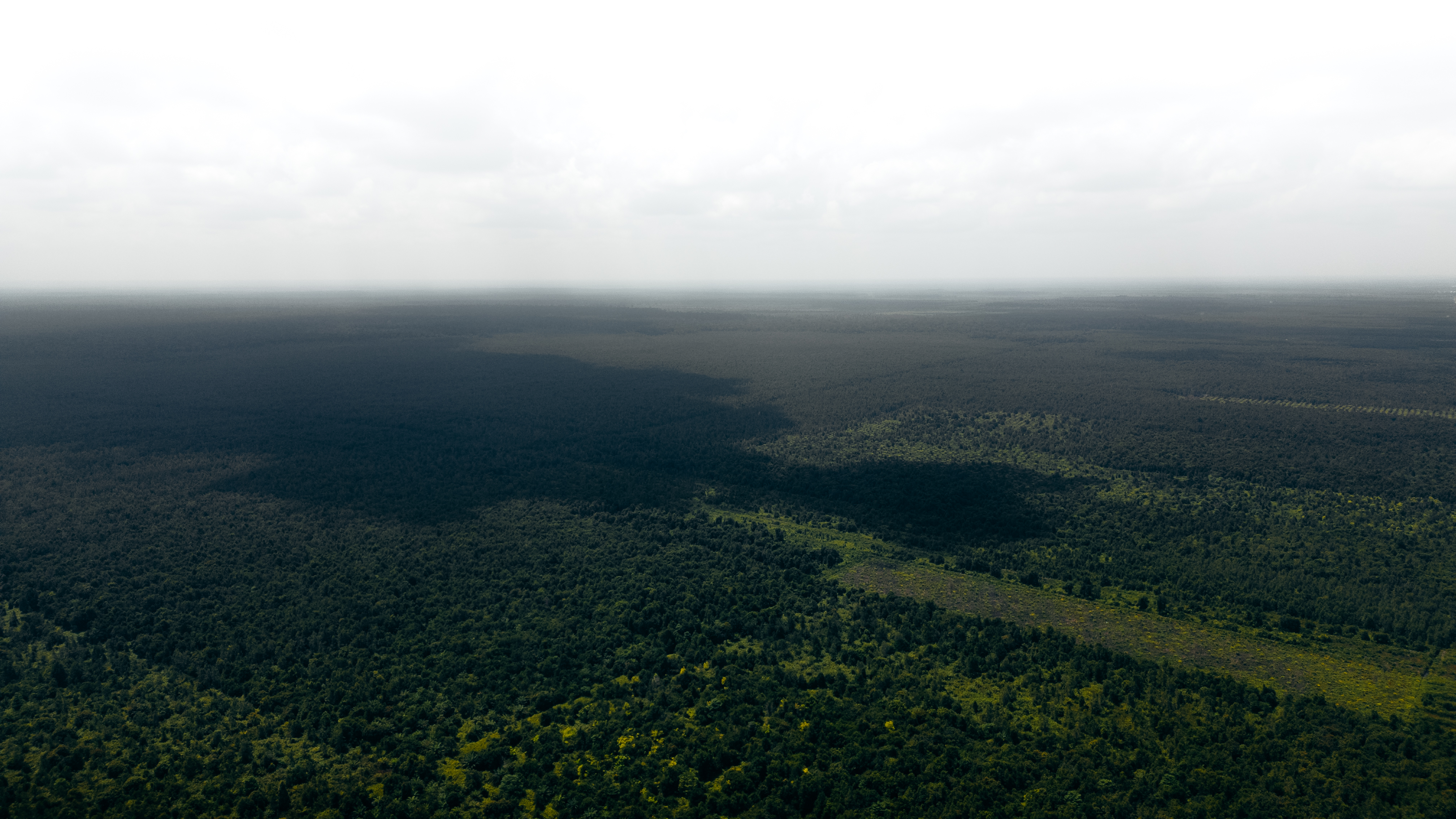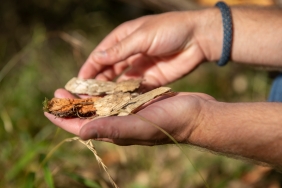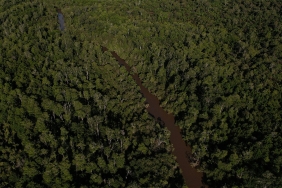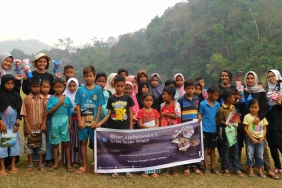HOB NATIONAL STRATEGIC AREA HARMONIZATION WORKSHOP HELD
In order to realize the Heart of Borneo area in spatial planning as a National Strategic Area (KSN), meeting points, cooperation and support from various parties are needed, especially local governments as managers and responsible for areas that have a strategic role. "In conducting KSN HoB spatial planning, it is necessary to prepare policy directions and strategies in order to realize a balanced spatial arrangement," said the Chairperson of the Central Kalimantan HoB Working Group, Dr. Siun Jarias, SH. MH.
In a speech read by Dr. Siun Jarias, SH. MH while officially opening the HoB National Strategy Area Harmonization Workshop, Wednesday (10/08), at the Aquarius Hotel, Palangka Raya, the Central Kalimantan Provincial Secretary who also serves as Chair of the Central Kalimantan HoB Working Group said that, KSN is an area whose spatial planning is prioritized because it has a very important national influence on state sovereignty, national defense and security as well as economic, social, cultural, and/or environmental, including areas designated as world heritage.
"The HoB Working Group of Central Kalimantan Province strongly supports this workshop to formulate the concept of revitalizing policies and strategies for the development of the HoB area as a National Strategy Area that is able to play a role as a regional growth center," .
Also present at the workshop, Dr. Andi Novianto, Chairman of the National HoB Working Group, said that the HoB National Strategy Area has functions as a protected area and cultivation area. "As a protected area, the area will be directed to be able to develop an environmental service economy such as ecotourism, water services, seed sources, sustainable natural resources and so on." In cultivated areas, the utilization of natural resources needs to be managed in accordance with certification standards that are accepted by the market and refer to the regulations of the Indonesian government so as to reduce the gap in the level of development between regions through integrated economic development.
The workshop, which was jointly organized by the National HoB Working Group, Central Kalimantan HoB Working Group and WWF-Indonesia, was a follow-up activity to the previous workshop that discussed the draft National Strategic Area in the HoB region. "It is expected that after this workshop there can be harmonization between the HoB KSN and the District RTRW," explained Wisnu Rusmantoro, National Coordinator of the Heart of Borneo Program, WWF-Indonesia.
In conducting the spatial planning of KSN HoB, the direction of policies and strategies of the area is needed, in accordance with the objectives of the Heart of Borneo initiative which was previously agreed upon by 3 countries. Some of the policies related to the HoB national strategic area include preserving and improving the function and carrying capacity of the environment to maintain and improve the balance of the ecosystem, preserving biodiversity, maintaining and improving the protection function of the area, preserving the uniqueness of the landscape, preserving national cultural heritage (indigenous tribes of Kalimantan), and developing the nation's socio-culture, as well as preserving and increasing the value of protected areas that have been designated as Natural Reserve areas and developing underdeveloped areas to reduce the level of development gap between regions through economic development of environmental services and best management practices for the utilization of natural resources. The HoB national strategic area is a protected area that has been designated as a Natural Reserve area.
*****SELESAI******
For more information, please contact:
- Dr. Andi Novianto, Chair of the Heart of Borneo Indonesia Working Group, novianto@ekon.go.id
- Wisnu Rusmantoro, National Coordinator of Heart of Borneo Program, WWF-Indonesia, wrusmantoro@wwf.or.id
- Media Contact: Nina Nuraisyiah, Communication Coordinator WWF-Indonesia Central Kalimantan, email: nnuraisyiah@wwf.or.id, Hp: +62-811-525356
Tira Maya Maisesa, Communication Officer, email: tmmihing@wwf.or.id, Hp: +62-811 5204985
Note to Editors:
About Heart of Borneo
Heart of Borneo is a multi-stakeholder initiative of the governments of the three countries of Brunei Darussalam, Indonesia and Malaysia, designed as a sustainable use and conservation program aimed at sustaining the benefits of one of the best remaining forests in Borneo for the well-being of current and future generations. The Heart of Borneo work area spans a series of Borneo's highlands that are directly connected to the lowlands below.
In Indonesia the Heart of Borneo region covers 3 provinces namely West Kalimantan, Central Kalimantan and East Kalimantan. There are 10 districts included in the Heart of Borneo area namely Kab. Sintang, Melawi, and Kapuas Hulu in West Kalimantan; Kab. Katingan, Gunung Mas, North Barito and Murung Raya in Central Kalimantan; Kab. Malinau, Nunukan and West Kutai in East Kalimantan.
Five Working Groups (Pokja) have been established namely the National Pokja (cross-sector), the Forestry Pokja (in the Ministry of Forestry) and 3 Provincial Pokja (in Central Kalimantan, West Kalimantan and East Kalimantan). These Working Groups are responsible for facilitating the development of the National Action Plan which is the mandate of the HoB Declaration. This action plan synergizes with the three countries' Strategic Plans and each province's action plan as well as local aspirations.
About WWF
WWF is an independent, global conservation organization founded in 1961 in Switzerland, with nearly 5 million supporters and an active network in more than 100 countries and in Indonesia working in more than 25 field regions and 17 provinces. WWF-Indonesia's mission is to save biodiversity and reduce the ecological impacts of human activities through: Promoting a strong conservation ethic, awareness and conservation efforts among Indonesians; Facilitating multi-stakeholder efforts for the protection of biodiversity and ecological processes at the ecoregion scale; Advocating for policies, laws and law enforcement that support conservation, and; Promoting conservation for human well-being, through the sustainable use of natural resources.
For more about WWF-Indonesia, please visit the organization's main website at http://www.panda.org/; local sites at http://www.wwf.or.id/ and WWF-Indonesia's membership site at http://www.supporterwwf.org/.WWF-Indonesia and Heart of Borneo: http://www.wwf.or.id/hob.





